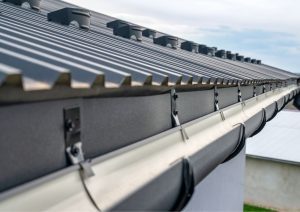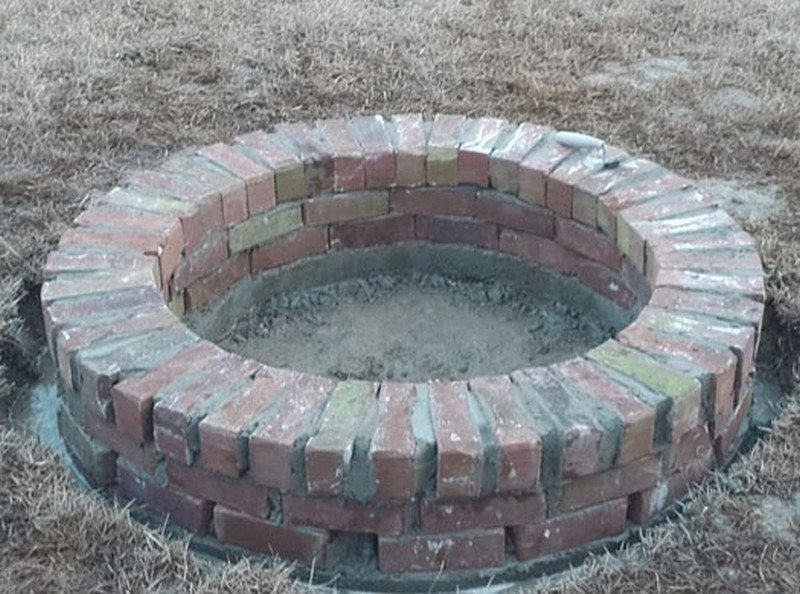
Who doesn’t like the idea of being able to unwind in a beautiful backyard after a hard day’s work?
And while you’re at it, wouldn’t a nice fire make the experience that much more pleasant?
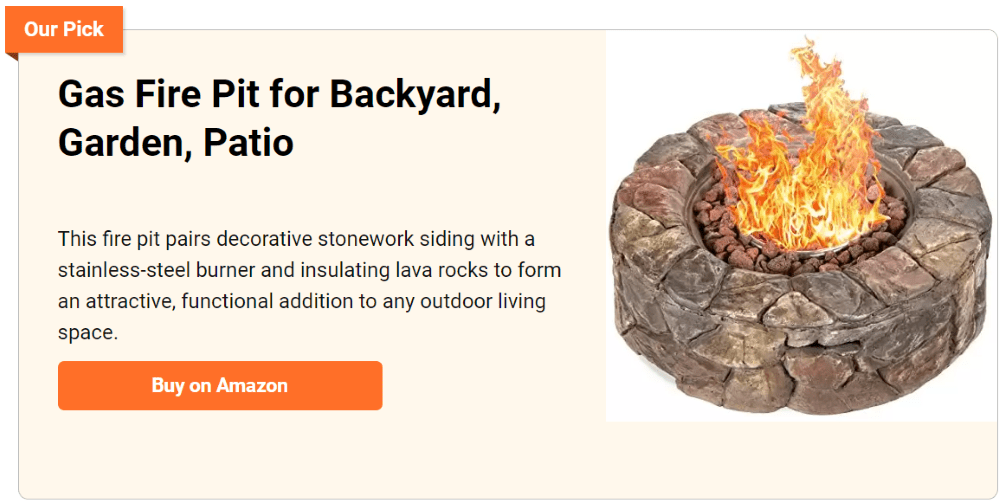
When I think of fire pace, my mind typically drifts back to cool summer and fall evenings with friends, roasting marshmallows, and enjoying lively conversations around a cozy, snapping fire.
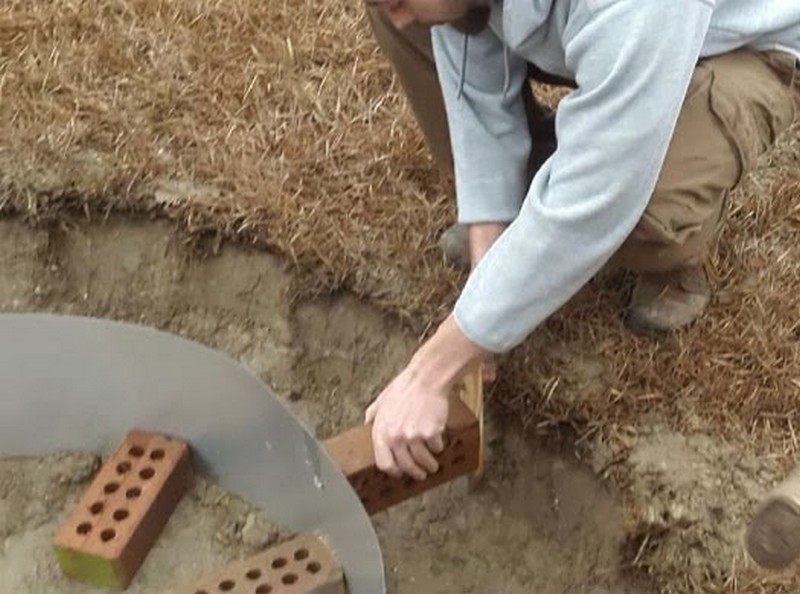
If you’re searching for the perfect above ground brick fire pit idea for your backyard, you might want to consider this one.
This weekend project is suitable for those who have a small outdoor space and who don’t need to move fire place from time to time. You will only need about 4 ft and 4 inches diameter of a circle in your area to build it.
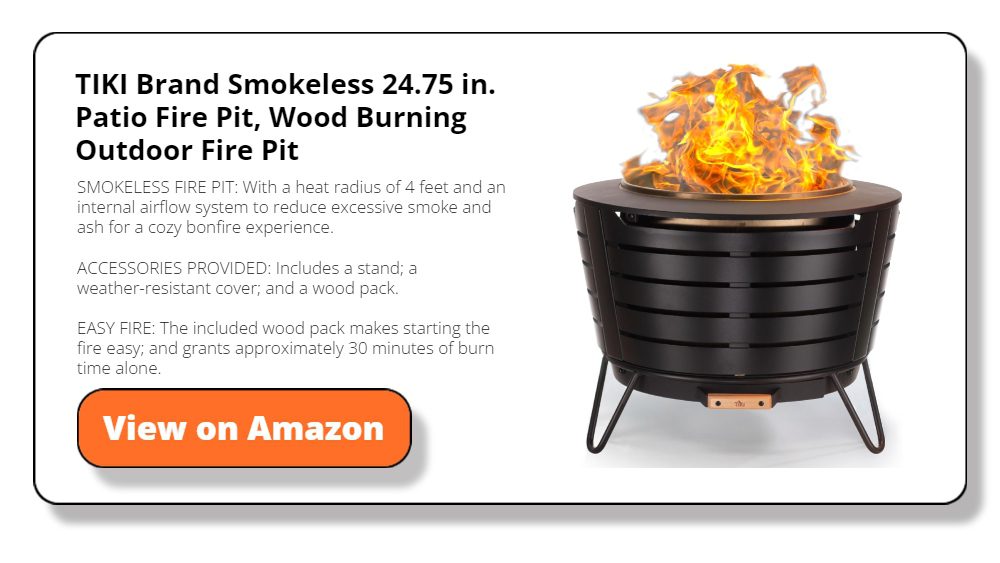
How to Build a Brick Fire Pit
This outdoor project is one of the easier red brick fire pit ideas you can find as its design is simple and straightforward. Just make sure the bricks you are using are fire bricks for a longer-lasting fire pit.
Materials:
- Bricks or Solid Stone
- Regular Sand (or dirt)
- Polymeric Sand
- Plastic Edging
- 8″ Spikes (for plastic edging)
- Strong Glue
- Grass Seed
- Spray Paint
And these tools:
- Shovel
- Rubber Mallet
- Hammer
- Carpenter’s Level
- String & Spike (for circle outline)
Instructions
- Choose the Location: Pick a spot in your backyard away from structures and overhanging trees. Ensure it’s a flat surface.
- Mark the Area: Use the string and spike to draw a circle in your chosen spot. The size depends on your preference. Spray paint the outline for clarity.
- Dig the Foundation: With your shovel, dig within the circle. Aim for a depth of 6-8 inches. This forms the foundation.
- Level the Base: Use the carpenter’s level to ensure the base is even. Fill any low areas with dirt or sand.
- Add Regular Sand or Dirt: Cover the base with a layer of regular sand or dirt. This should be about 2-3 inches thick. Level it out.
- Install Plastic Edging: Surround your pit area with plastic edging to keep bricks in place. Use the 8″ spikes to secure the edging.
- Lay the First Layer of Bricks: Start laying your bricks or stones along the edge. Use the rubber mallet to secure them in place. Check with the level.
- Apply Strong Glue: Once the first layer is set, apply strong glue on top before starting the second layer. This adds stability.
- Continue Layering: Repeat laying bricks and applying glue until you reach the desired height. Usually, 3-4 layers are sufficient.
- Fill with Polymeric Sand: Pour polymeric sand over the top of the bricks and sweep it into the cracks. This solidifies the structure.
- Final Touches: If needed, plant grass seed around the fire pit for a natural look. Your brick fire pit is now ready for use.
Click on any image to start the lightbox display. Use your Esc key to close the lightbox. You can also view the images as a slideshow if you prefer 😎
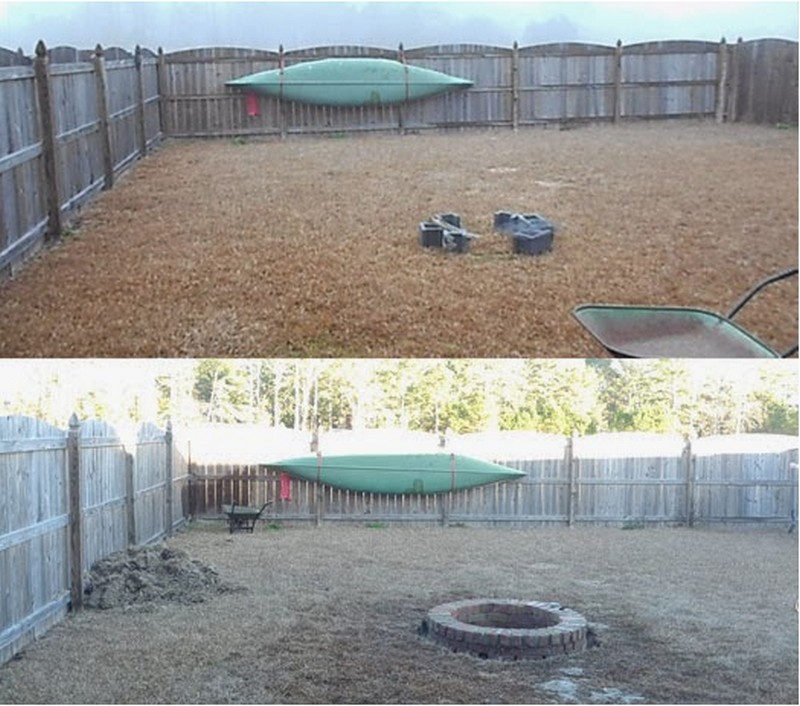
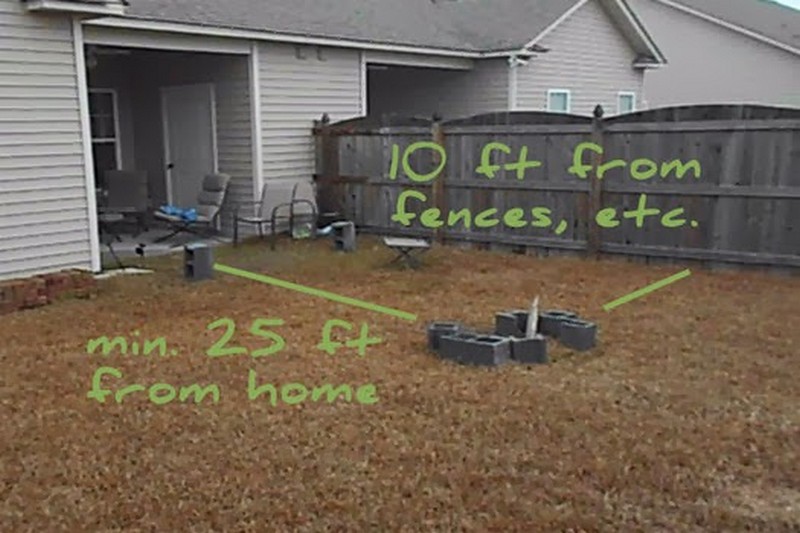
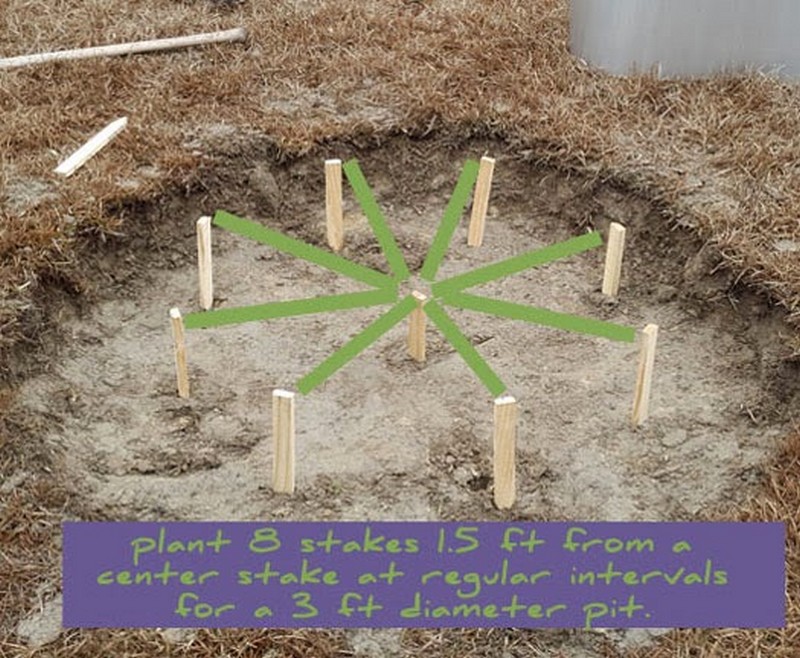
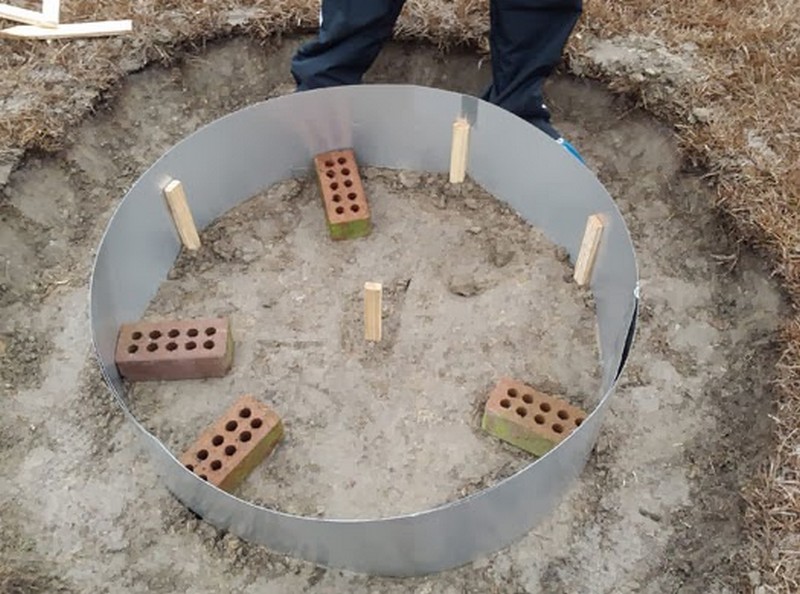

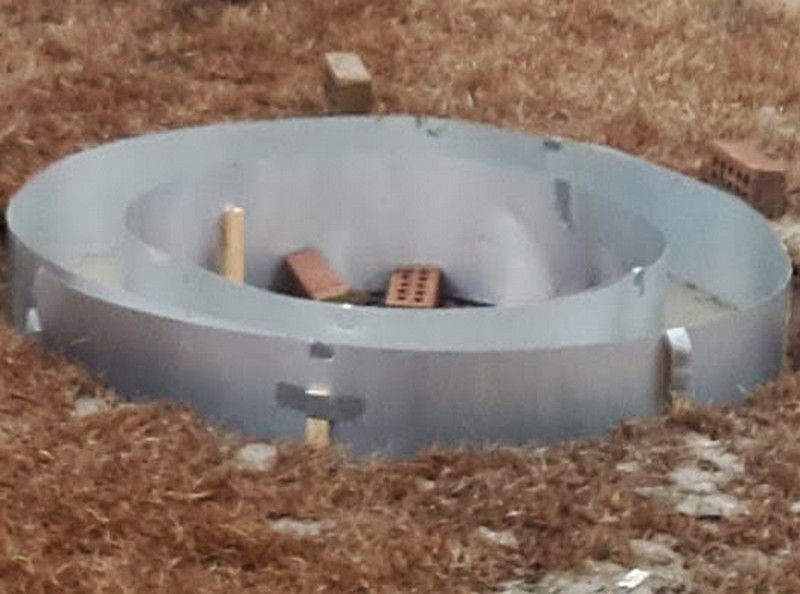
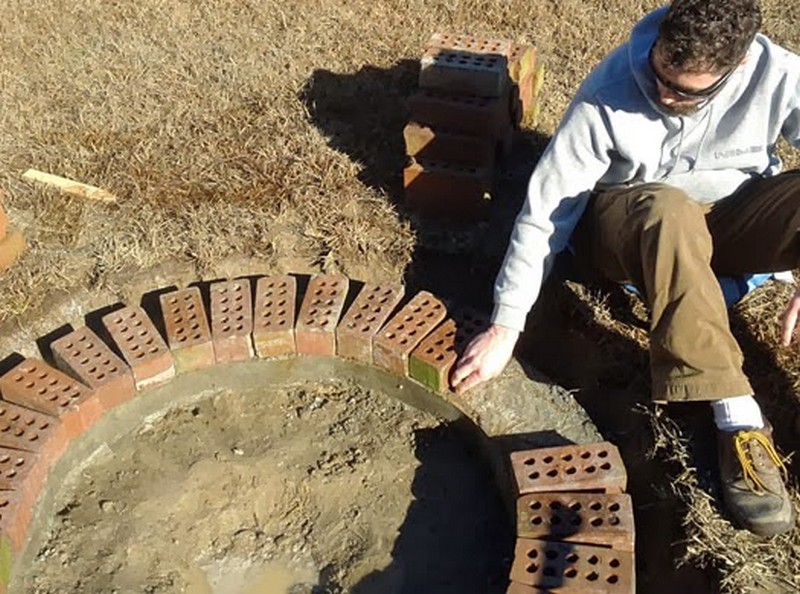
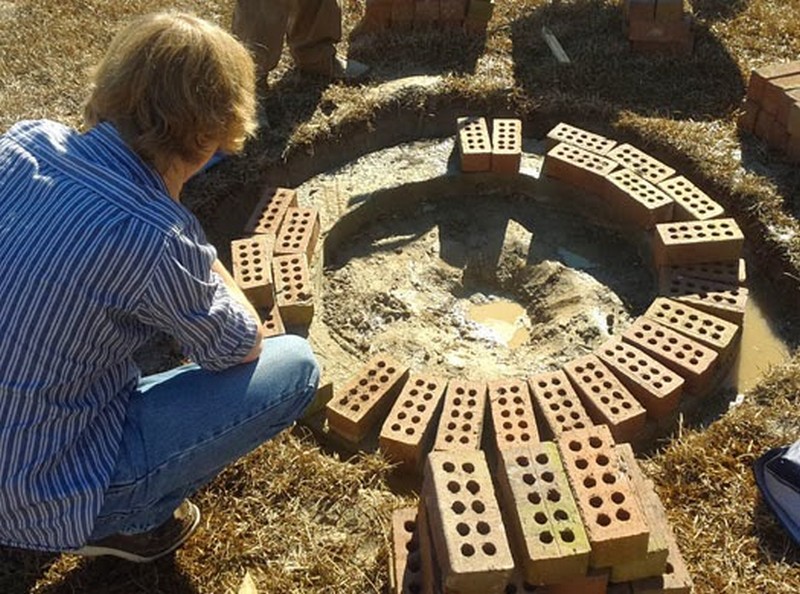
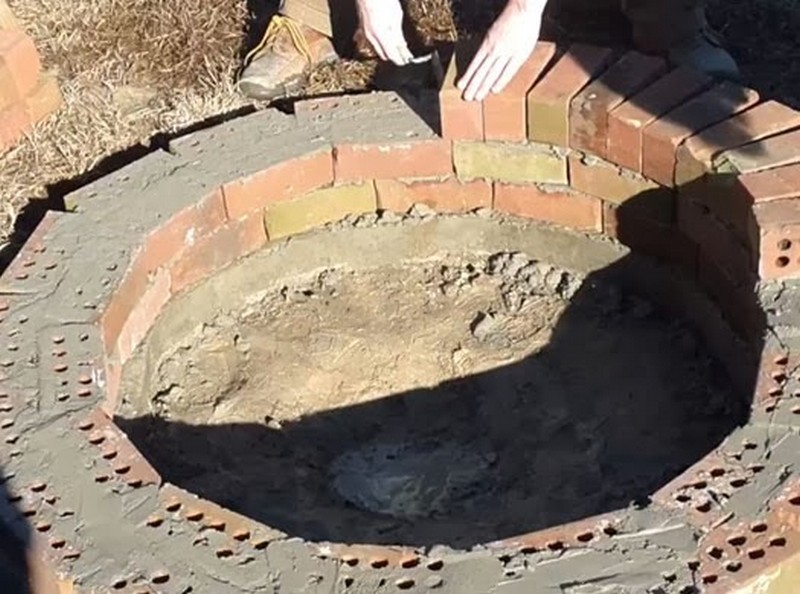

If you liked this project, you will also like viewing these fire pit ideas…
Choosing the Right Bricks for Your Brick Fire Pit
Building a brick fire pit in your backyard requires careful selection of materials. The right bricks ensure durability, safety, and aesthetic appeal. This guide focuses on how to choose the best bricks for your brick fire pit.
Understanding Brick Types
Clay Bricks
Clay bricks have long been a popular choice in building brick fire pits. Their traditional look adds a classic touch to any backyard. One of their key benefits is their ability to withstand high temperatures. This makes them an ideal option for your brick fire pit, especially in areas that will be in direct contact with fire.
They are kiln-fired, which gives them a sturdy structure able to endure the heat without deteriorating quickly. Additionally, clay bricks come in various colors and textures, allowing for customization of your brick fire pit to suit your outdoor space’s aesthetic.
Concrete Bricks
Concrete bricks present a more modern and uniform appearance. These bricks are known for their consistency in size and shape, which can simplify the construction process of your brick fire pit.
They’re generally easier to lay due to their uniformity, leading to a more streamlined and symmetrical brick fire pit. However, it’s important to note that concrete bricks may not offer the same level of heat resistance as clay bricks or fire bricks.
While they can be used for the outer parts of your brick fire pit, they might not be the best choice for areas directly exposed to fire, as they can crack or deteriorate under extreme heat conditions.
Fire Bricks
Fire bricks, also known as refractory bricks, are specifically engineered to handle extreme temperatures, making them the premier choice for the inner lining of your brick fire pit. These bricks are made from refractory ceramic material which can withstand temperatures much higher than what typical clay or concrete bricks can endure. This feature is crucial for preventing your brick fire pit from cracking or getting damaged due to the heat.
Using fire bricks for the interior of your brick fire pit also adds an extra layer of safety, as they are less likely to degrade or produce harmful substances when exposed to high heat. Their heat-resistant qualities ensure a longer lifespan for your brick fire pit, making them a wise investment for a safe and enduring backyard feature.
Evaluating Brick Quality
Durability
Durability is a pivotal factor when selecting bricks for your brick fire pit. The bricks should be capable of withstanding not just the heat from the fire but also various weather conditions. Over time, your brick fire pit will face rain, wind, sun, and possibly freezing temperatures.
Durable bricks will resist these elements without cracking, crumbling, or losing their color. This longevity is crucial to ensure that your brick fire pit remains a functional and aesthetic feature in your backyard for years.
Look for bricks that are specifically rated for outdoor use and have a reputation for longevity. This choice may have a higher upfront cost, but it will save you money and effort in the long run by reducing the need for repairs or replacement.
Heat Resistance
Heat resistance is a non-negotiable quality for bricks in your brick fire pit. The bricks must be able to withstand the high temperatures generated by the fire without sustaining damage.
Non-resistant bricks can crack or explode when exposed to high heat, posing a safety risk and potentially damaging your brick fire pit. This is why materials like fire bricks are recommended, especially for the inner layers of the fire pit, as they are designed to handle extreme temperatures.
Ensuring that the bricks can handle such conditions will keep your brick fire pit safe and functional throughout its use.
Size and Shape
The size and shape of the bricks are important for the ease of installation of your brick fire pit. Uniform bricks, with consistent dimensions, make the building process smoother. They fit together neatly, reducing the time and effort needed to align them properly.
This uniformity also contributes to the overall appearance of the brick fire pit, giving it a neat, cohesive look. Additionally, consider the weight and handling ease of the bricks. Lighter bricks might be easier to handle and position, especially for DIY projects.
The shape of the bricks can also add a design element to your brick fire pit. For example, curved bricks can be used to create a rounded fire pit, while straight-edged bricks are ideal for a more angular design. The choice of size and shape will ultimately depend on your design preferences and the complexity of the fire pit you plan to build.
Aesthetic Appeal
The aesthetic appeal of your brick fire pit plays a significant role in enhancing the overall look of your outdoor space. When choosing bricks, consider how their color, texture, and shape will blend with the surrounding landscape and the style of your home. Bricks come in a variety of hues, from classic red to earthy browns, or even multi-tonal options, allowing you to create a fire pit that complements or contrasts with your existing outdoor decor.
Textural differences, such as smooth versus rough finishes, can add depth and character to your fire pit. The design of your brick fire pit can also be a focal point in your backyard, making it important to choose bricks that aesthetically align with your vision. A well-chosen brick style not only enhances the functionality of the fire pit but also elevates the ambiance of your outdoor gatherings.
Safety and Regulations
Safety and adherence to regulations are critical when building your brick fire pit. Before starting your project, research local building codes and regulations related to outdoor fire pits. These regulations may dictate the size, location, and even the type of materials you can use.
Ensuring that your brick fire pit meets these standards is crucial for the safety of your family and neighborhood. It’s also important to avoid potential fines or having to reconstruct your fire pit.
Consider factors like distance from structures, fire suppression methods, and ventilation. Compliance with these regulations not only ensures safety but also gives you peace of mind when using your brick fire pit.
Cost Considerations
While budget is an important consideration, investing in quality bricks for your brick fire pit has long-term benefits. Cheaper bricks might save money initially, but they may not offer the same durability or safety as higher-quality options.
Over time, lower-quality bricks might crack, fade, or need more frequent repairs, leading to additional costs. Investing in quality bricks means investing in the longevity, safety, and appearance of your fire pit.
This does not mean you have to choose the most expensive option. Instead, look for bricks that offer a balance between cost, quality, and performance. Remember, your brick fire pit is an extension of your home, and choosing the right materials can enhance its value and enjoyment for years to come.
Design Ideas for a Brick Fire Pit to Enhance Your Outdoor Space
Creating a brick fire pit in your backyard can transform your outdoor space into a cozy and stylish retreat. Here are some design ideas to help you make the most of your brick fire pit.
Classic Round Design
The timeless round design remains a popular choice for a brick fire pit. It offers a communal feel, perfect for gathering friends and family. Use uniformly sized bricks for a sleek look, or vary the brick sizes for a more rustic appeal.
Square or Rectangular Fire Pit
For a more modern and structured look, consider a square or rectangular brick fire pit. This design works well with contemporary outdoor settings and can be a stunning focal point in your backyard.
Incorporate Seating
Enhance your brick fire pit by adding built-in seating. You can use the same bricks as your fire pit for a cohesive look. Add cushions for comfort and style.
Multi-level Design
A multi-level brick fire pit adds depth and dimension to your outdoor space. This design allows for a separate area for the fire and a higher level for placing drinks or decorative elements.
Accent with Natural Stone
Mixing bricks with natural stone can create a unique look for your brick fire pit. The combination brings a balance of texture and color, enhancing the natural appeal of your outdoor space.
Include a Cooking Surface
Make your brick fire pit multi-functional by incorporating a flat surface for cooking. This can be a swiveling iron grate or a permanent flat stone surface.
Mosaic Brick Patterns
Create a visually striking design by arranging bricks in a mosaic pattern. This adds an artistic touch to your brick fire pit and can be a great conversation starter.
Color Contrast
Play with different colored bricks to add visual interest to your brick fire pit. Contrasting colors can define the shape of the fire pit and make it stand out.
Integrate Lighting
Incorporate lighting around your brick fire pit for ambiance and safety. Low voltage LED lights or solar-powered lanterns can create a magical evening setting.
Each of these design ideas can be tailored to fit the style and size of your outdoor space, making your brick fire pit not just a source of warmth, but also a key element in your backyard’s aesthetic appeal.
Maintenance and Care for Your Brick Fire Pit
Proper maintenance and care are essential to ensure your brick fire pit remains safe, functional, and visually appealing. Here are key steps to take in maintaining your brick fire pit.
Regular Cleaning
After each use, once the ashes have cooled, remove them. This prevents accumulation and potential blockage of airflow. Periodically wash the bricks with a mild detergent and water. This helps remove soot and grime. Avoid harsh chemicals that could damage the bricks.
Inspect for Damage
Regularly inspect your brick fire pit for any cracks or damage. Small cracks can be repaired, but larger damage might require professional attention. Tighten any loose bricks. You may need to reapply strong glue or mortar to secure them.
Apply Sealant
Consider applying a sealant to the bricks. This helps protect them from moisture and weather damage, especially if you live in an area with harsh weather conditions.
Cover When Not in Use
When your brick fire pit is not in use, especially during rainy or snowy seasons, cover it. A cover protects it from water and debris.
Control Vegetation
Keep the area around your brick fire pit clear of overgrown grass and plants. This reduces fire hazards and keeps the area tidy.
Avoid Overloading
Keep the fires in your brick fire pit moderate in size. Overly large fires can cause excessive heat, leading to damage.
Seasonal Maintenance
- Prepare for Winter: In colder regions, prep your brick fire pit for winter. Clear out all debris and cover it to protect from snow and ice.
- Spring Check: In spring, inspect your brick fire pit for any winter damage and clean it thoroughly before use.
By following these maintenance and care tips, your brick fire pit will remain a safe and enjoyable feature in your backyard for many years. Regular upkeep not only extends its lifespan but also keeps it looking as good as new.
FAQs about Building and Maintaining a Brick Fire Pit
How deep should the foundation for a brick fire pit be?
Aim for a depth of 6-8 inches for the foundation. This depth provides stability and proper drainage.
Can I use regular bricks for the fire pit?
Regular bricks can be used for the outer structure, but for areas exposed directly to heat, fire bricks are recommended due to their higher heat resistance.
Do I need a permit to build a brick fire pit in my backyard?
This depends on local regulations. Check with your local building authority to determine if a permit is required.
How often should I clean my brick fire pit?
After each use, remove ashes. For general cleaning, a thorough wash every few months is sufficient, depending on usage.
What is the best way to repair cracks in a brick fire pit?
Small cracks can be filled with fire-resistant mortar. For larger cracks or damage, consult a professional.
Is it necessary to use a sealant on the bricks?
While not always necessary, applying a sealant can extend the life of your fire pit by protecting against moisture and weather elements.
How can I ensure my brick fire pit is safe to use?
Regularly inspect for damage, keep the area clear of flammable materials, and never leave the fire unattended. Also, ensure it’s built at a safe distance from structures and trees.
What should I do with my brick fire pit during winter?
Clear all debris, ensure it’s dry, and cover it to protect it from snow and ice. Avoid using it in extremely cold temperatures to prevent damage from thermal shock.
Can I cook over my brick fire pit?
Yes, you can. Consider adding a grill grate or a flat cooking surface for this purpose. Ensure the materials used are safe for cooking.
How do I choose the right location for my brick fire pit?
Choose a level spot away from structures, trees, and overhanging branches. Ensure it complies with local regulations regarding distance from buildings.
Conclusion
Building a brick fire pit in your backyard is a rewarding project that enhances your outdoor living space. By selecting the right materials, adhering to safety standards, and applying creative design elements, you can create a functional and beautiful fire pit. Regular maintenance ensures its longevity and safety.



